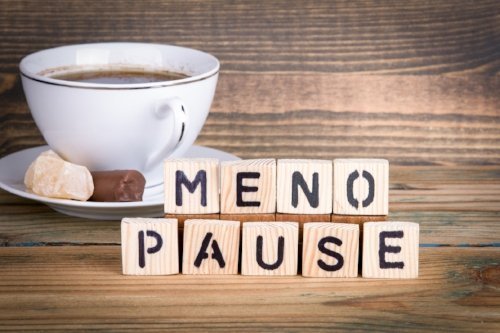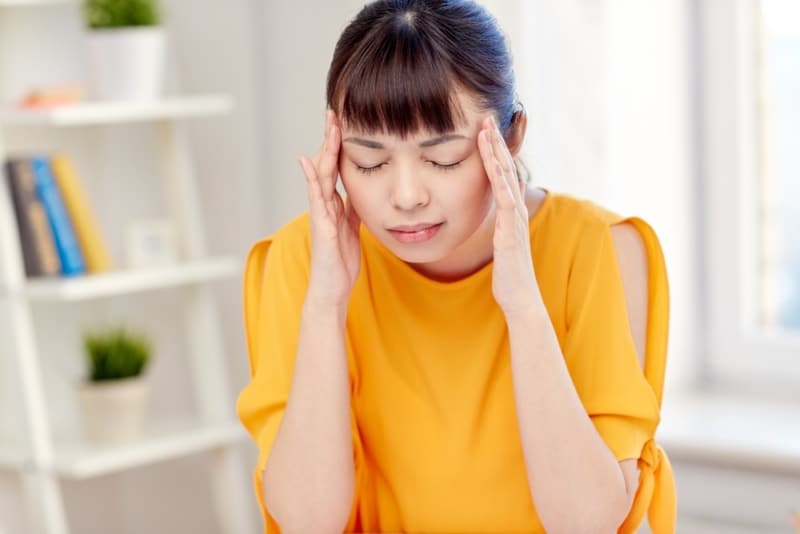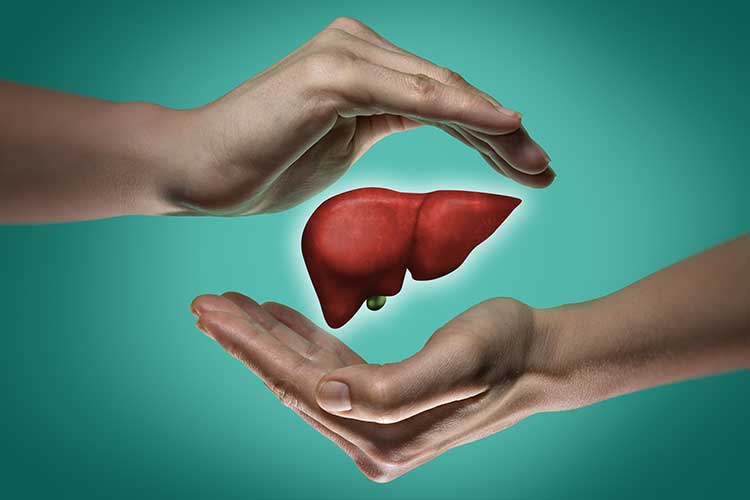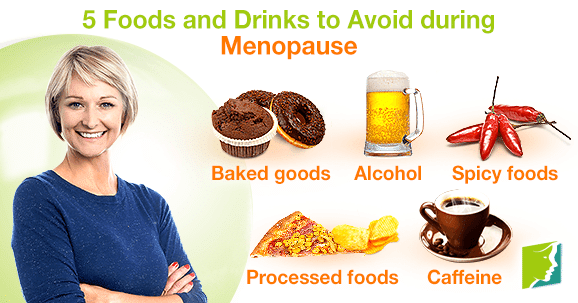
Contents
Coffee Can Worsen Hot Flashes and Else to Menopausal Women
Many studies have been conducted on the advantages and disadvantages of coffee. It was analyzed that drinking too much coffee causes insomnia, becomes irritable, and has side effects such as increased anxiety. Conversely, some other studies have shown that intake of caffeine in moderate amounts can burn fat, improve physical performance, and reduce the risk of diabetes. Additionally, it is important to understand how much caffeine is in your cup per day for your health.

According to a research paper conducted by the US,, drinking coffee in menopausal women exacerbates hot flashes in which their faces are easily reddened and also sweating while sleeping. However, for women with these symptoms, caffeine can help improve memory and concentration instead.
Therefore, if you limit caffeine intake, women suffering from postmenopausal hot flashes and sweating during sleep will benefit from this. Overall. overcoming the symptoms of menopause is not easy. But there are many strategic approaches, and reducing caffeine intake could be an alternative.
Menopausal Women Get Less Osteoporosis If They Drink 1-2 cups Of Coffee A Day
In menopausal women, drinking 1 to 2 cups (200 to 400 ml) of coffee a day can help reduce the risk of osteoporosis. However, drinking more than 3 cups (600 ml) of coffee a day increases the risk of osteoporosis, so the women in menopause should be careful.

Moreover, studies have shown that drinking 1 to 2 cups of coffee in menopausal women is good for bone health, including a lower risk of osteoporosis than people who do not drink coffee at all.
According to the research, those who drank less than 1 cup of coffee a day (based on 1 to 199 ml) had osteoporosis (21%) and those who drank 1 cup (200 ml) more than those who didn’t drink at all.
It has been known that caffeine, the main component of coffee, interferes with calcium absorption and causes osteoporosis, and coffee has been regarded as a beverage that is not good for bone health.
However, In another study, drinking more than 330 ml of caffeine a day, that is, more than 3 cups (600 ml) of coffee a day increases the risk of osteoporosis, but drinking 1-2 cups of coffee a day prevents fractures and strengthens bones.
Anyway, excessive caffeine intake can worsen insomnia, one of the menopausal syndromes. There is also a risk of urinary incontinence symptoms due to frequent urination. Therefore, for a healthy menopausal life, it is important to keep an appropriate amount of caffeine intake.
Last but not least, if you are a postmenopausal woman, you should organize your diet with foods that can help you with a healthy menopausal life along with caffeine, and manage it consistently with enough sleep and exercise.
Post-menopausal Women Sleepless And Increased Depression
A study found that women who had menopause after having surgery to treat a disease, had increased sleeping problems and depression compared to women who had menopausal spontaneously.
Sudden decrease in female hormones can cause more menopausal symptoms than natural menopause according to one research. The research team divided the postoperative menopause group and the natural menopause group to compare the incidence of depression and sleep disorders.
As a result, the incidence of depression was 15% in the natural menopause group while 22% in the surgical menopause group. In addition, in the postoperative menopause group, the sleep time was short, the quality was low, and the incidence of insomnia was about twice as high.
Compared to women with natural menopause, women after surgery may experience more severe menopausal symptoms such as depression, sleep problems, hot flashes, and night sweats because the female hormone levels are significantly reduced in menopausal women.
Besides, those of natural menopause women when they take coffee, nap, or even drink alcohol.
Therefore, post-menopause or menopause women should be careful and be aware of the side effects of caffeine when you drink coffee or take any other caffeine-containing food.
3 Unexpected Reasons of Why You Need Coffee
Coffee contains not only caffeine but also various antioxidants (aging) such as polyphenol compounds, which are beneficial for health, such as preventing liver cancer.

On the other hand, it can cause a number of side effects such as insomnia, gastroesophageal reflux, heart palpitations, and discoloration of teeth. It is true that people who should drink coffee and those who prefer to avoid it are at odds. Who does coffee consumption benefit from health?
People who feel dizzy when standing up from sitting
The reason your blood pressure is low when you sit and wake up is because blood is gathered in your legs. For this reason, there are people who need to be careful because blood pressure may be lowered even after eating.

You may fall down when you get up after overeating while sitting with your legs crossed at a meal meeting. Besides, if you always move your legs to raise the blood that has accumulated on the legs, it can be a good way to raise your blood pressure.
Usually, people who have low blood pressure and frequently complain of dizziness occur when you sit down and stand up. 1 or 2 cups of coffee is recommended to increase wakefulness.
People who care about bone health
Some people have a preconceived notion that drinking coffee is bad for bone health. However, menopause women drinking 1-2 cups of coffee a day can improve bone health. It is because coffee contains estrogen, chlorogenic acid (antioxidant effect), diterpene (anti- inflammatory properties) in it, which may have beneficial effects on bone health .

Women in menopause can take less than 3 cups of coffee per day for the prevention of fractures and it can help to make healthy bones. Previous studies have shown that caffeine, a component of coffee, interferes with calcium absorption, causing osteoporosis. However, the level of caffeine that causes osteoporosis is 330 mg or more per day, which is the amount you need to drink 600ml of coffee per day .
People who are concerned about liver cancer
The view that coffee is beneficial to liver health has been around for a long time. Based on the results of numerous overseas studies, the fact has clarified the liver cancer suppression effect of coffee in the medical guidelines as the official position of the society.

The health benefits of coffee, it is analyzed to be due to various antioxidants such as chlorogenic acid and magnesium. When these substances enter the body, they improve the ability to control inflammation and help prevent cancer.
If So, Then, How Many Cups Of Black Coffee Should I Drink A Day ?
The degree of reaction to caffeine in coffee varies greatly depending on age and health level. Food and Drug destination specified, caffeine intake per day based on the adult 400mg or less, pregnant 300mg or less, children – youth 2.5mg / kg ( body weight ) is appropriate. According to this standard, 4.8 cans of canned coffee, 8.3 bags of coffee mix, 5.4 cups of capsule coffee, and 3.3 cups of coffee at a coffee shop are the recommended amount per day.

However, keep in mind that other foods you eat a day contain caffeine as well. Black coffee is recommended rather than coffee mixed with sugar and prim. Coffee consumption standards should be tailored to the individual’s health. The same is true of other foods, but drinking coffee properly can help keep you healthy .
Besides The Advantages, What Are The Side Effects Of Coffee?
It is well known that coffee can cause insomnia. In addition, it may cause discoloration of teeth and gastroesophageal reflux. Gastroesophageal reflux, in which stomach acid flows from the stomach into the esophagus, is the number one cause of indigestion. Even if you have a stomach ulcer, it is better to refrain from coffee .

What is more, heartbeat is a symptom you feel when your heart beats quickly or irregularly. In medical terms, it is called arrhythmia. This symptom is often caused by the heart, but it can also occur when you are emotionally excited or anxious, after heavy exercise, or after you consume too much caffeine-containing beverages such as coffee. Therefore, if you have those symptoms mentioned above, you’d better reduce or refrain from coffee for your health.
Good and Bad Food for Menopause
As you approach menopause, you will suffer from headaches and insomnia. You can feel the heat in your body and gain weight, which can cause great discomfort in your daily life. In this case, the food you eat is important. Certain foods make these symptoms both worse and relieve them. So, what foods will make you feel more comfortable during menopause?
Fish is Good for Menopause
If we have healthy food when it is menopause, our bodies can get the nutrients you need to keep alive. Fish with healthy fats is good for everyone, but especially for women after menopause, it is an excellent food choice to enhance your health.

Women at this time have an increased risk of heart disease, in which case seafood containing healthy fats, omega-3 fatty acids, helps maintain heart health. Omega-3 from fish can prevent the situation of platelets from sticking to the blood vessels, and also prevent heart disease as well. They are really nice to protect the heart.
Yogurt and Green Vegetables are Good for Menopause
After the age of 50, you need to increase your calcium intake as well. In this case, you can add only one yogurt as a snack to your usual diet. Low-fat plain yogurt contains approximately 415 mg of calcium, which is about half of your daily calcium intake. Foods high in calcium are good nutrients to supplement during this period, as they are good for bone health.

Green vegetables are also a must-eat. Green vegetables are a food that has great health benefits for everyone, but vegetables like broccoli are especially good for postmenopausal women. This is because, like yogurt, it contains calcium, which helps protect bones, and also provides antioxidants that play an important role in maintaining vision. If you don’t like broccoli, you can opt for green leafy vegetables like kale or collard greens.
On The Contrary, What Are Some Foods To Avoid During This Period?
To keep your bones strong and keep your blood pressure at normal levels, it is suggested to avoid salty food or snacks. If you take lots of salt, then you should drink a lot of water as well. It is also a good idea to reduce your intake of all types of alcohol , including red wine. While some claim that one drink a day is okay, there are reports that just one drink a day increases the risk of breast cancer in women.

Especially women over the age of 5 are more exposed to the risks. Whatever, excessive alcohol intake is bad for your liver health, so it is recommended to drink less. Overall both alcohol and coffee can cause a fever, so fruit juices or teas with ice are better choices or alternatives. However, do not forget to add no artificial sweeteners other than the natural sugar in the fruit when eating fruit juice~!
References
